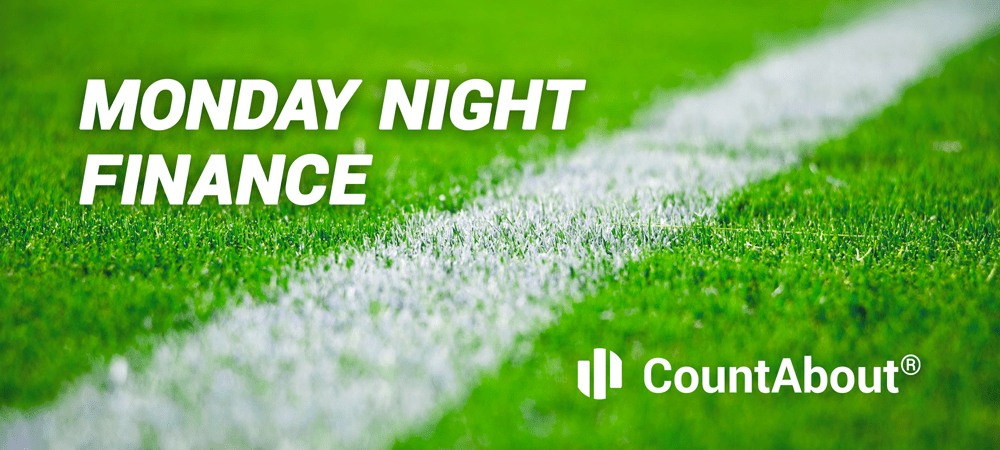Would Our Emergency Plan Hold Up to COVID-19
Coronavirus has resulted in record unemployment throughout North America. This rapid rise in unemployment is causing people to save more money and re-evaluate their emergency funds. An emergency fund is money set aside for a major crisis, typically the loss of a job. While most financial advisers suggest having 6 months of living expenses saved, many Americans have much less saved. For example, 40% of Americans have less than $400 saved in an emergency fund. Chrissy, from Eat Sleep Breathe FI, suggests that you don’t just need an emergency fund, but an emergency plan for how you will access the emergency fund and how you will get through your job loss.
This pandemic has thrown so many twists and turns our way… and it’s not even close to over. We have no idea if we’ll still be okay in 6 months or a year from now. ~Chrissy at Eat Sleep Breathe FI
In this article, Chrissy uses the COVID-19 pandemic to stress-test her emergency plan to see how they would survive the loss of her husband’s job (they are a single income family). In this stress test, Chrissy assumes that neither of them would be able to find work for 3 years after the job loss. In this scenario, Chrissy plans on drawing down some of their investments that they had put away for a possible early retirement. While using this investment cushion may delay their retirement date, she estimates that they could live for 3 years on only 15% of their portfolio (after it loses an additional 50% due to a stock-market crash concurrent with the job loss). It is clear that Chrissy’s family is in good shape. Check out the full article for her emergency plan and how to test your own portfolio.
I’m Asking for a Raise After One Year of Work
When was the last time you asked for a raise? How did it go? Did you find yourself hemming-and-hawing over the right time to do it? Maybe you questioned whether you should ask for a raise at all. Telling your employer that you’re unhappy with something can be a nerve-racking experience. Jobs provide a steady income, health insurance, and a sense of purpose. Does asking for a raise jeopardize your job or put you on a black list? If you feel like you’re underpaid and are preparing to ask a raise, you should definitely check out this article by Darcy at WeWantGuac.
The “why” for asking for a raise should be obvious: I like money. I like it so much I’ve written over sixty articles this year alone about it. Everyone wants more money, duh. You’re not here to know why I want it, you’re here to know how I’m going to get it. ~Darcy at We Want Guac
In this article, Darcy presents research about asking for raises along with her strategy for asking for a raise. The article assumes that you’re not working in the public sector and can negotiate your salary. Did you know that over 3/4 of the time, people in Boston who ask for a raise receive one? Even in other cities, you’ve got a better than 50:50 chance, statistically, of receiving some sort of raise after asking for one. Darcy also has great tips on how to frame the raise request and how to justify your worth. This article is a must-read for those who haven’t asked for a raise in a while.
12 Best Budgeting Apps to Master Your Money in 2020
Has the coronavirus finally moved creating a budget to the top of your to-do list? Many people have no idea where their money goes each month. Starting a budget and tracking spending are the first steps towards achieving financial success. Years ago, if you wanted to do this, you’d need to sit down with a checkbook register and a notebook. However, with the rise of electronic payments and the internet, it’s relatively easy to create a budget and track your spending. There are many different software packages to help you do this (we recommend CountAbout, obviously). In this article, Ricardo of The Modest Wallet examines different budgeting tools.
How can you know which budgeting app is the right one for you? To help, we’ve created a list of the 12 best budgeting apps you can use to take control of your financial situation in 2020. Which app you choose will depend on your needs and requirements, but we’re confident that you’ll find one that works for you in this article. ~Ricardo at The Modest Wallet
In this article, Ricardo reviews 12 major budgeting apps and has a very positive review of CountAbout. He highlight’s CountAbout’s customizability and notes that is is a great option for small businesses. This is especially true with CountAbout’s new invoicing feature which allows small businesses to create, send, and track invoices. Finally Ricardo notes that CountAbout interfaces well with other finance software, like Quicken. For Ricardo’s full review, check out the article.

